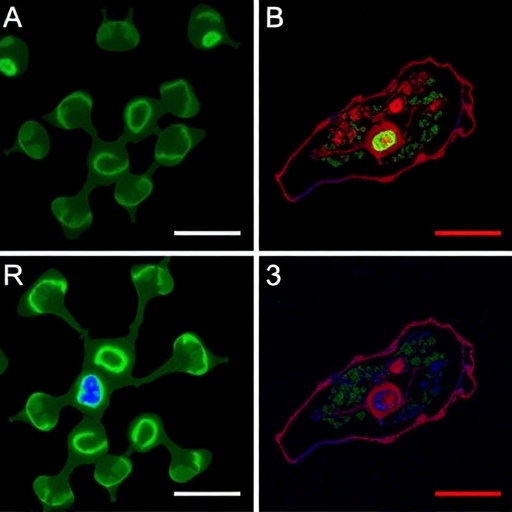
Credit: Penn Nurisng & City, University of London
(PHILADELPHIA) Dec. 12, 2016 – In one of the first studies to examine priorities in recovery identified by trauma patients, family members and clinicians over time, an international research partnership that was launched from the University of Pennsylvania School of Nursing (Penn Nursing) and Griffith University School of Nursing & Midwifery in Australia has helped advance the importance of patient-reported outcome measures for improved trauma care and research. The study, "Indicators of Injury Recovery Identified by Patients, Family Members and Clinicians," was recently published in the journal Injury and is available here in digital format.
"While it is recognized that focusing on what patients envision to be good outcomes is an important part of patient-centered care, asking trauma patients and their families what they consider to be the priorities of care and recovery has been neglected," said Penn Nursing's Therese S. Richmond, PhD, FAAN, CRNP, the Andrea B. Laporte Professor of Nursing and Associate Dean for Research & Innovation. Richmond, and study's lead author Leanne M. Aitken, PhD, RN, Professor of Nursing, now at the City, University of London, conceived the research while Aitken was undertaking a Fulbright Senior Scholarship at the University of Pennsylvania.
The study focused on two areas: learning what patients, family members and clinicians considered to be the indicators of successful recovery from an acute hospitalization after traumatic injury; and understanding if these indicators differed between these groups of stakeholders or changed over time, from during hospitalization to three months after discharge. Thirty-three trauma patients, 22 family members and 40 clinicians were recruited from trauma departments in two Australian teaching hospitals.
Stakeholders in the study identified five specific Indicators of recovery, including returning to work, resuming family roles, achieving independence, recapturing normality and achieving comfort. Trauma patients articulated the most detail in these indicators, compared to the responses from the study's other stakeholders.
"Understanding different perceptions in relation to outcomes is particularly important in trauma, where patients may not be able to participate in decision making for a period of their hospitalization," said Aitken.
Perceptions of indicators of injury recovery changed for some participants over the three months after they were discharged. These changes fell into three broad groups: increasing recognition that activities of daily living were important; increasing realization of the impact of the injury; and unfolding appreciation that life could not be taken for granted.
While in the hospital, trauma patients in the study often noted the desire to be able to care for themselves. The practical implications of their physical limitations, however, did not fully reveal themselves until after discharge. Instead, the ripple effects of limitations in their abilities to undertake basic self-care activities or have full range of movement of their limbs became increasingly apparent within the first month of being at home.
"Changes in expectations and priorities over time have implications for how we provide education and support that should be tailored to different phases in the recovery trajectory," said Richmond. "As patients and family members change their expectations over time, appropriate care needs to be provided across the care continuum."
The study's findings indicate a further need to explore recovery priorities using quantitative techniques to determine relevance to a broad cross-section of trauma patients and to develop an appropriate set of outcome measures that patients consider to be important. Although some differences between stakeholder groups were identified, similarities and differences should be tested further in larger groups.
"It is expected that by understanding what matters to patients and family members will help us empower patients to be active participants in the healthcare process and will underpin development of patient-reported outcomes that should be used in practice and research in trauma care," said Aitken. "This information will also inform future trauma outcome research to ensure these priority areas are appropriate for a broader range of participants."
###
In addition to Aitken and Richmond, the research team included: Wendy Chaboyer, RN, PhD, NHMRC Centre of Research Excellence in Nursing (NCREN), Menzies Health Institute Queensland & School of Nursing and Midwifery, Griffith University, Australia ; Carol Jeffrey, RN, MHSc, Princess Alexandra Hospital, Australia, and School of Nursing and Midwifery, Griffith University, Australia; Bronte Martin, RN, MNurs, National Critical Care Trauma Response Centre, Royal Darwin Hospital, Australia; Jennifer A. Whitty, BPharm(Hons) GradDipClinPharm PhD, Health Economics, Norwich Medical School, University of East Anglia, Norwich, UK, Menzies Health Institute Queensland & School of Medicine, Griffith University, Australia and School of Pharmacy, The University of Queensland, Australia; Michael Schuetz, FRACS, Dr.med. Dr.med.habil., Charité Hospital, Humboldt University Berlin, Germany.
Editor's Note: The team of researchers report no conflicts of interest.
About the University of Pennsylvania School of Nursing
The University of Pennsylvania School of Nursing is one of the world's leading schools of nursing and is ranked the #1 graduate nursing school in the United States by U.S. News & World Report. Penn Nursing is consistently among the nation's top recipients of nursing research funding from the National Institutes of Health. Penn Nursing prepares nurse
Media Contact
Ed Federico
[email protected]
215-746-3562
http://www.nursing.upenn.edu





